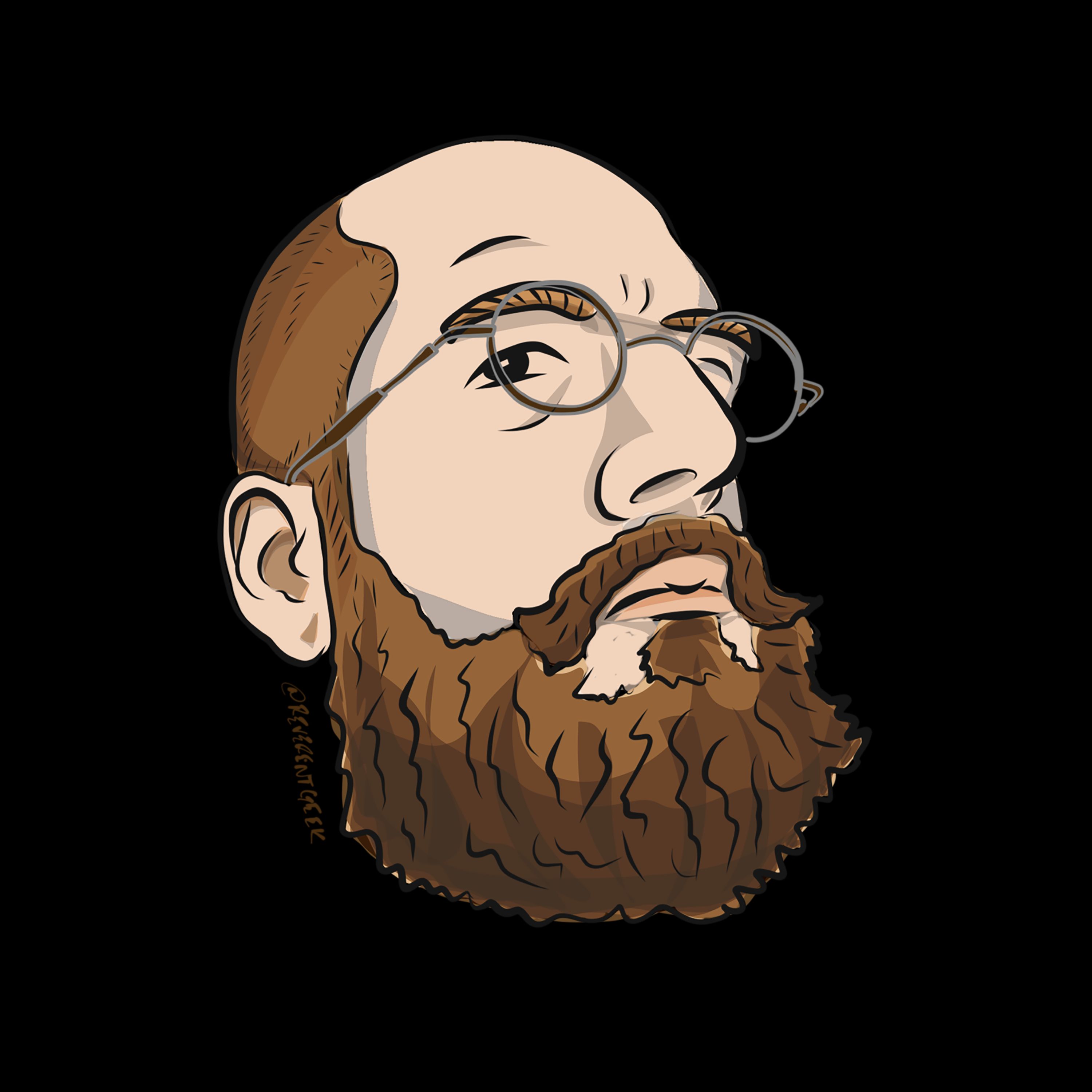Posts tagged with 'podcast'
The podcast keeps rolling in May, with more great guests!
Reminders:
-
Be sure to check out my sponsor: Smartsheet! Thanks to them, I’m able to afford some new equipment, more hosting, and the JavaScript game show prizes!
-
If you’re enjoying the new JavaScript game show, please send in your suggestions. I’m running out of ideas, and you and your ideas could be featured on this show. I need real and made-up suggestions! The sillier the names, the better.
-
I rarely talk about this, but if you would be so kind as to tell a friend about the show, post about it on Facebook or Twitter, and leave a review on iTunes or Google Play or wherever else, I would be forever grateful!
Subscribe now!
Here’s what’s coming in March:
-
My good pal Calvin Allen is back, talking about a potpourri of topics on his mind.
-
The great Doc Norton talking about the experimentation mindset.
-
James Munns talking about embedded programming.
-
The legendary David Neal returns to talk about his artwork, which has taken over Twitter lately.
-
And maybe, just maybe, one extra special episode this month.
Subscribe now with your podcatcher of choice!
Want to be on the next episode? You can! All you need is the willingness to talk about something technical.
Craig Stuntz is manipulating .NET IL. This episode is sponsored by Smartsheet.
Show Notes:
-
Craig Stuntz was the second guest I ever had on the show. Check out Podcast 002 - Craig Stuntz on Idris
-
Craig was at CodeMash presenting with these slides
-
RuJIT was mentioned
-
I dare you to keep these straight:
-
I don’t think he mentioned it by name, but I think Fizil is the fuzzer that he’s working on.
-
SQLite created by Dr. D. Richard Hipp
-
Mono.Cecil, part of the Mono project. DNLib is another similar tool.
-
Sure, I’ll plug my book again, since we mentioned AOP. AOP in .NET
-
Obfuscation is a technique to prevent people from reverse engineering/tampering with your code. Dotfuscator is one of the tools that comes to mind.
-
Blog post: "type erasure" in Java
-
Blog post: tail calls in F#
-
The "goat behind door number 2" is a reference to the Monty Hall Paradox (which is a great discussion topic for parties)
-
Book: .NET IL Assembler by Serge Lidin
-
ECMA 335 is the Common Language Infrastructure standard. I’d like to ecma-international.org, but their site seems to be broken at the moment.
-
Good ol' LINQPad
-
Meetup: Papers We Love Columbus
Want to be on the next episode? You can! All you need is the willingness to talk about something technical.
Music is by Joe Ferg, check out more music on JoeFerg.com!
Jeffrey Miller wrote a children’s book. This episode is sponsored by Smartsheet.
Show Notes:
-
The book: SkeeterBooks.com. Buy it and leave a review!
-
Published and distributed by Columbus Publishing Lab
-
What is a TRS-80? The finest piece of affordable computing that the 80s had to offer, that’s what!
-
eHarmony (dating site)
-
We mentioned two publishing companies that I got mixed up: Leanpub and The Pragmatic Bookshelf (PragProg)
-
Jim Holmes’s book, The Leadership Journey, is on Leanpub.
-
-
Author: Seth Godin who is very prolific. I think I’ve ready a measly one of his books, but I don’t remember which one.
-
Sure, I’ll plug my book again: AOP in .NET (I would also appreciate a review)
-
There are a lot of Mastermind groups, like Columbus Mastermind Group
-
Amazon’s Kingle Direct Publishing (KDP)
-
Dale Herron, illustrator of Skeeters
-
Book: Bearable Moments, by Christopher Judd (another pillar of the developer community)
-
Conference CodeMash
-
Book: Hello Ruby (Kickstarter)
-
Hello Ruby is by Linda Liukas, who was on The Hanselminutes Podcast (episode #547)
-
Book: Lauren Ipsum by Carlos Bueno
Want to be on the next episode? You can! All you need is the willingness to talk about something technical.
Music is by Joe Ferg, check out more music on JoeFerg.com!
Andrea Cremese wrote a dissertation on developer motivation.
Show Notes:
-
Frederick Herzberg talks about "hygiene factors" in the book: Motivation to Work
-
Check out episode 36 on the film Pirates of Silicon Valley for some talk about Xerox PARC
-
Some positive examples, per Andrea:
-
Satya Nadella, CEO of Microsoft
-
Amazon
-
Smartsheet
-
-
Glassdoor is a site where employees review their employer. I’m not terribly keen on it, especially when there is a small sample size, but it could be a useful tool in some situations.
-
Dan Ariely was mentioned, check out his TED talk What makes us feel good about our work?
-
Some quotes regarding Ariely that Andrea wanted me to share:
-
Large Stakes and Big Mistakes, (Dan Ariely one of the authors), quote: "Workers in a wide variety of jobs are paid based on performance, which is commonly seen as enhancing effort and productivity relative to non-contingent pay schemes. However, psychological research suggests that excessive rewards can, in some cases, result in a decline in performance. To test whether very high monetary rewards can decrease performance, we conducted a set of experiments in the U.S. and in India in which subjects worked on different tasks and received performance-contingent payments that varied in amount from small to very large relative to their typical levels of pay. With some important exceptions, very high reward levels had a detrimental effect on performance."
-
Does money really motivate people?, quotes: "But maybe the small sums involved in Ariely’s example and Deci’s experiments undermine their application to real-world international business and finance. To address this, Ariely and colleagues, recruited villagers in India to play games testing memory, creativity and motor skills, offering three different groups four, 40 or 400 rupees per game for scoring highly. The maximum reward was equivalent to the amount spent by the average person living in rural India in five months. They found that those offered the highest incentives performed worst, earning an average of 20% of the maximum possible, compared to around 36% for those in the low and medium reward groups. "Our results challenge the assumption that an increase in motivation would necessarily lead to improvements in performance," says Ariely."
-
And: "If I gave you a bigger bonus to jump you would jump more times," says Ariely. "You have very good control over your legs and if I give you more money you will transmit more power to them and therefore you will be more successful. We don’t have the same control over memory, creativity and concentration. You can’t will yourself into a higher state of concentration and creativity. It’s actually counterproductive and hinders performance strongly." Anyone that has tried to force themselves to concentrate can probably relate to those findings. But there are also more subtle effects of motivation that can be teased apart using these new techniques.""
-
-
In the same vein as Pirates of Silicon Valley, check out The Triumph of the Nerds
-
Halt and Catch Fire! You should check this show out. I personally can’t get enough of the opening theme. Here’s a part of one my favorite scenes in the series (minor spoiler alert if you haven’t watched any of the show)
-
Not related to the dissertation at all, but check out Better Call Saul (NSFW language)
Want to be on the next episode? You can! All you need is the willingness to talk about something technical.
Music is by Joe Ferg, check out more music on JoeFerg.com!
Chase Aucoin has created a microservices manifesto. This episode is sponsored by Smartsheet.
Show Notes:
-
Some acronyms mentioned:
-
SOA (Service-oriented architecture) is a broad topic, but here’s a little article on the History of SOA
-
ERP (Enterprise resource planning), examples you may have heard of include Microsoft Dynamics, PeopleSoft, SAP
-
ESB (Enterprise service bus), examples you have have heard of include Microsoft BizTalk, Azure Service Bus, WebSphere ESB, and many others.
-
CI/CD - Continuous Integration (in a nutshell: build automation) / Continuous Deployment (in a nutshell: deploying software to production on a frequent basis)
-
-
RabbitMQ - an open-source message broker
-
Docker - a container platform
-
"Waterfall" is typically used disparagingly to describe a "big design up front" approach to creating software, as opposed to an iterative "agile" approach.
-
February was Marfan’s Awareness Month, thanks for sharing that, Chase!
Want to be on the next episode? You can! All you need is the willingness to talk about something technical.
Music is by Joe Ferg, check out more music on JoeFerg.com!




